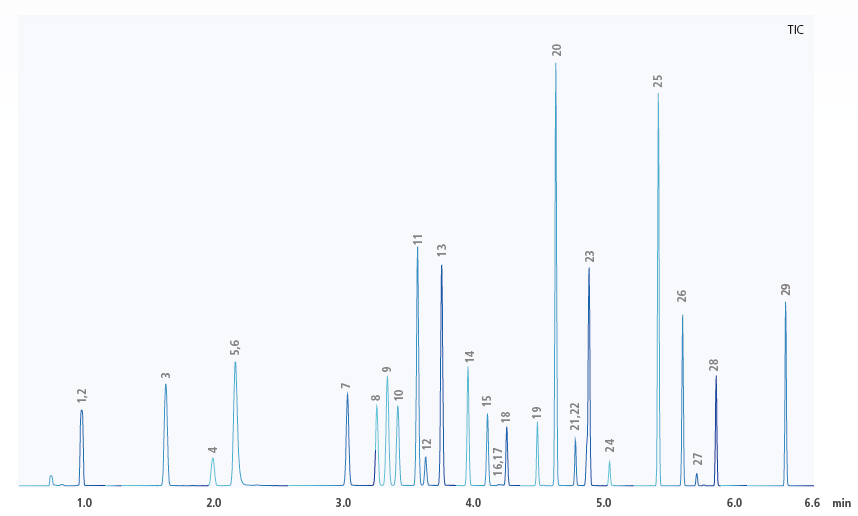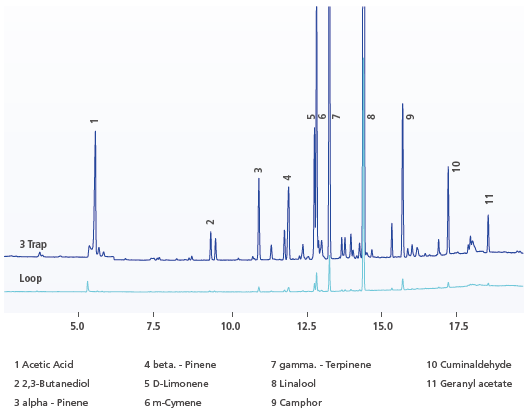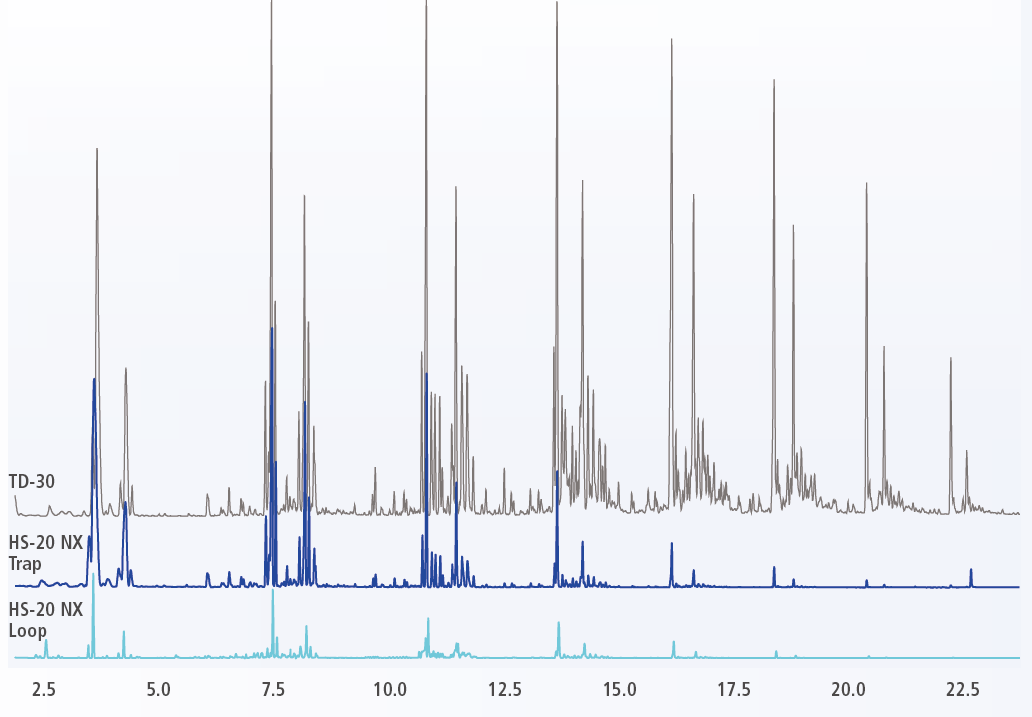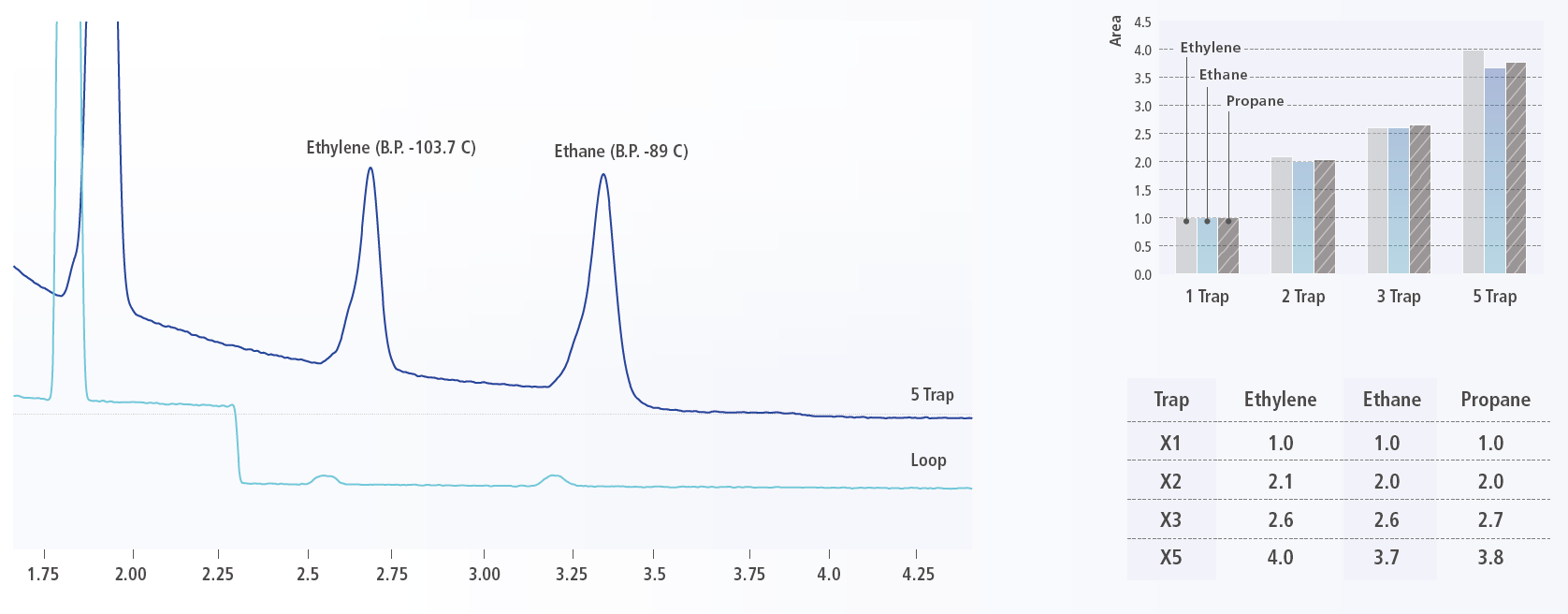HS-20 NX series - Applications
Headspace Sampler
Rapid Analysis of Volatile Organic Compounds (VOC) in Water by HS-GC/MS
High-speed simultaneous analysis of 26 VOC components, including vinyl chloride monomer and 1,4-dioxane in water, was performed. This method requires 30 minutes of vial heating time with a headspace sampler, but with automatic overlap analysis, up to six samples per hour can be measured*.
* The vial heating time of the 1st analysis, 30 min, is not overlapped, so up to 3 samples can be measured in the first hour.

-
- 1 Vinyl chloride monomer - d3
2 vinyl chloride monomer
3 1,1-Dichloroethylene
4 dichloromethane
5 Methyl tert-butyl ether
6 trans -1, 2-Dichloroethylene
7 cis -1, 2-dichloroethylene
8 chloroform - 9 1,1,1-Trichloroethane
10 carbon tetrachloride
11 benzene
12 1,2-Dichloroethane
13 fluorobenzene
14 trichloroethylene
15 1.2 Dichloropropane
16 1.4 -dioxane-d8
- 1 Vinyl chloride monomer - d3
-
- 17 1.4- dioxane
18 bromodichloromethane
19 cis -1, 3 dichloro -1 propene
20 toluene
21 trans -1, 3-dichloro -1 propene
22 1,1,2-Trichloroethane
23 tetrachloroethylene
24 dibromochloromethane - 25 m, p-xylene
26 o-xylene
27 bromoform
28 4-Bromofluorobenzene
29 p-Dichlorobenze
- 17 1.4- dioxane
Ultra-sensitive analysis
Trace Fragrance Analysis in Spices
by HS-20 NX Trap Mode
In some cases, the HS-20 NX loop model may not be sensitive enough to analyze trace amounts of flavor in food samples like spices. The HS-20 NX trap model can concentrate the analytes in a sample by using some trap materials, which enables ultra-sensitive analysis.-

Analysis of extractables and leachables contained in packages
- It has been pointed out that there are safety concerns about extractables and leachables contained in pharmaceutical packages and medical devices leaching into human bodies and medicines. Thus, it is required to understand residual solvents and residual monomers contained in polymers. The use of the HS-20 NX trap mode and the Xtra Low Bleed HS septa, which is made of highly heat resistant and clean material, enables the analysis and evaluation of extractables and leachables, an analysis that is difficult with the loop mode.
-

Comparative Analysis of Extracts from Eye Drops Caps
(TD-30 vs HS-20 Trap Mode vs HS-20 NX Loop)
Sample enrichment using an electronic cooling trap
The HS-20 NX Trap model includes an electronic cooling trap. Since the HS-20 NX Trap models can be cooled down to -20 °C or less, it is possible to concentrate and analyze chemicals over a wide boiling range.

Comparison of analysis of 1 ppm of hydrocarbons (loop vs trap x 5)



